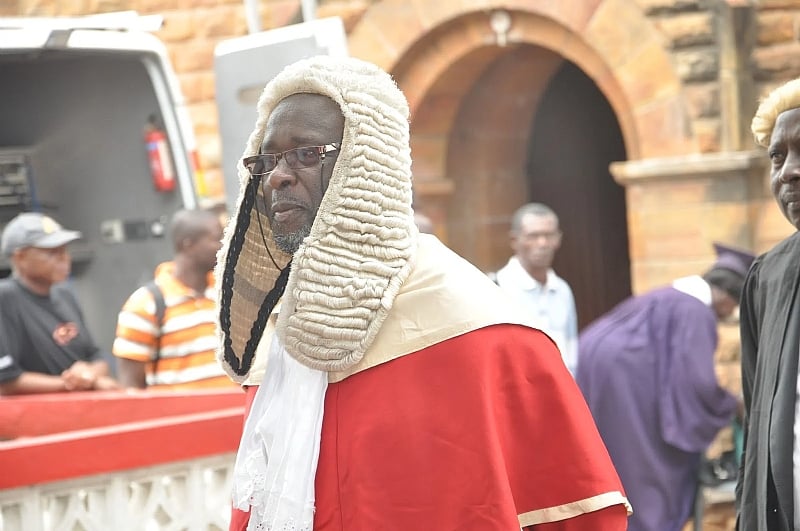The Ghanaian judiciary is navigating a period of significant transition and heightened scrutiny following the suspension of Chief Justice Gertrude Araba Esaaba Sackey Torkornoo and the subsequent appointment of Justice Paul Baffoe-Bonnie as Acting Chief Justice. This shift in leadership underscores the constitutional mechanisms in place to ensure continuity within the judicial branch and highlights the importance of upholding the principles of due process and transparency, particularly when addressing matters concerning the highest judicial office. The situation stems from allegations contained within three petitions submitted against Chief Justice Torkornoo, prompting a presidential investigation and her eventual suspension.
Justice Baffoe-Bonnie, a seasoned jurist with a long and distinguished career on the Supreme Court bench, assumes the mantle of Acting Chief Justice based on the provisions of Article 144(6) of the 1992 Constitution. This article dictates that the most senior Supreme Court Justice shall act as Chief Justice in instances where the incumbent is unable to perform their duties. Having been appointed to the Supreme Court in June 2008 by then-President John Agyekum Kufuor, Justice Baffoe-Bonnie brings extensive experience and a deep understanding of the legal landscape to this interim leadership role. His appointment is not only constitutionally mandated but also serves to maintain stability and ensure the continued functioning of the Supreme Court during this period of uncertainty.
The suspension of Chief Justice Torkornoo, which occurred on April 22, 2025, was initiated by President John Dramani Mahama after a preliminary review of the petitions against her found a prima facie case. This action, taken in accordance with Article 146(6) of the Constitution, followed consultations with the Council of State, a constitutionally mandated advisory body. The establishment of a five-member committee to investigate the allegations further underscores the commitment to due process and the importance of thoroughly examining the claims before any final determination is made regarding the Chief Justice’s position. The committee’s findings will undoubtedly play a crucial role in shaping the future of the Ghanaian judiciary.
While the specific details of the petitions remain undisclosed, their existence and the subsequent suspension of the Chief Justice have spurred intense public and legal discourse. Calls for transparency and adherence to constitutional safeguards have dominated the conversation, highlighting the public’s vested interest in ensuring the integrity and accountability of the judicial system. The ongoing proceedings are being closely watched by legal experts, civil society organizations, and the general public, all of whom recognize the significance of this case for the overall health of Ghana’s democracy. The balance between protecting the rights of the accused and maintaining public trust in the judiciary presents a delicate challenge that must be carefully navigated.
In the interim, Justice Baffoe-Bonnie bears the responsibility of steering the Supreme Court and ensuring the smooth administration of justice throughout the country. His leadership will be crucial in maintaining stability and public confidence in the judiciary during this transitional period. The Acting Chief Justice’s decisions and actions will be closely scrutinized as he navigates the complexities of this situation and strives to uphold the principles of fairness and impartiality that are fundamental to the rule of law. His experience and wisdom will be essential in guiding the Supreme Court through this challenging time and ensuring that the judicial process continues to function effectively.
The unfolding events surrounding the suspension of the Chief Justice and the appointment of an Acting Chief Justice represent a significant moment for Ghana’s judicial system. The outcome of the investigation and the subsequent decisions made will have far-reaching implications for the future of the judiciary and the broader landscape of governance in Ghana. The commitment to due process, transparency, and constitutional adherence will be paramount in ensuring that the process is conducted fairly and that the final outcome serves the best interests of the nation and its people. The eyes of the nation are on the judiciary as it navigates this complex and crucial juncture.














